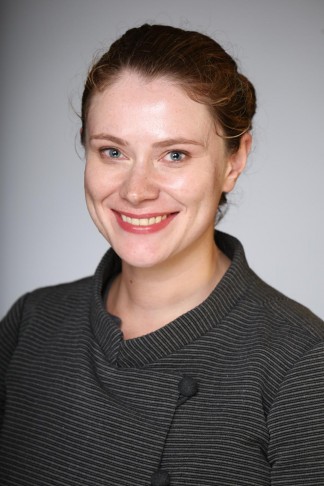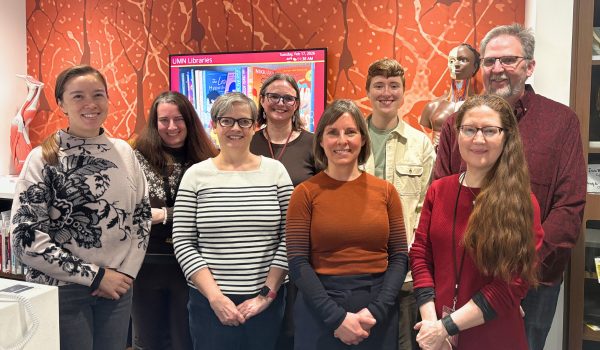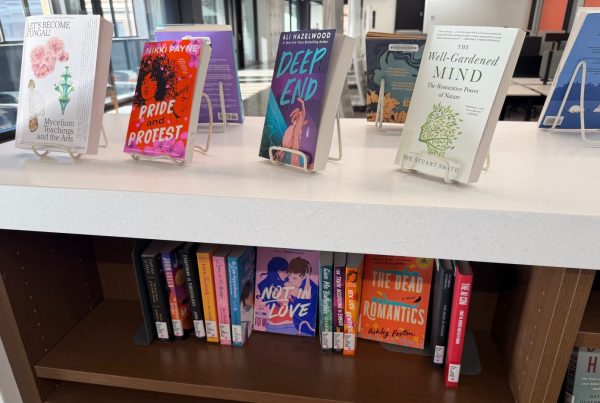By Allison Campbell-Jensen
Teaching in person seems a little bit distant for Caitlin Bakker, Research Services Liaison, who is working from home now. Yet that was the nature of her work with the Family Medicine Collaborative Scholars Intensive Course last year. Being an instructor was rewarding — and also earned her an Affiliated Teaching Award from the Medical School department.
The Family Medicine department offers the course to encourage clinical faculty to become engaged in publishing. Bakker helped to lead six all-day workshops, offered over a year, that developed faculty’s research and scholarship skills.
Learning the ropes
Sessions focused on skills like doing a literature search, strategies for staying organized and motivated, visualizing data in figures and tables, choosing journals in which to publish, responding to peer reviewer feedback, and more.
“They’re going from having an idea to having a manuscript to submit,” Bakker says.
Among the rewards, she notes that she worked with a “really fun, wonderful” team of faculty and researchers who co-taught the course. And those taking the course pursued projects “all over the map in the best possible way,” she says, with a great variety of topics and methods. Many of them aim to improve patient care or the health care system.
Excellent teaching
“For me, at its core, teaching should be a like a conversation,” Bakker says, “with give and take and dialogue between the person teaching and the class.” She respects that people bring their own experiences and questions — and she wants to be responsive to needs, even if those are beyond the topic for the day.
An important part of the course, she says, is helping people express their scholarly voices — and to that end, encouraging them to share their thoughts and opinions.
Continuing the conversation
The course may have ended but the conversation does not have to. Bakker makes it clear to students that “I am your librarian. It’s not that I’m only available in an allotted period. We want them to continue to use these skills sets and to know the resources that are available to them.”
There are many at the U who are eager to support faculty. And, Bakker adds: “If they remember nothing else that I say in that course, if they remember my contact information, that’s enough.”





